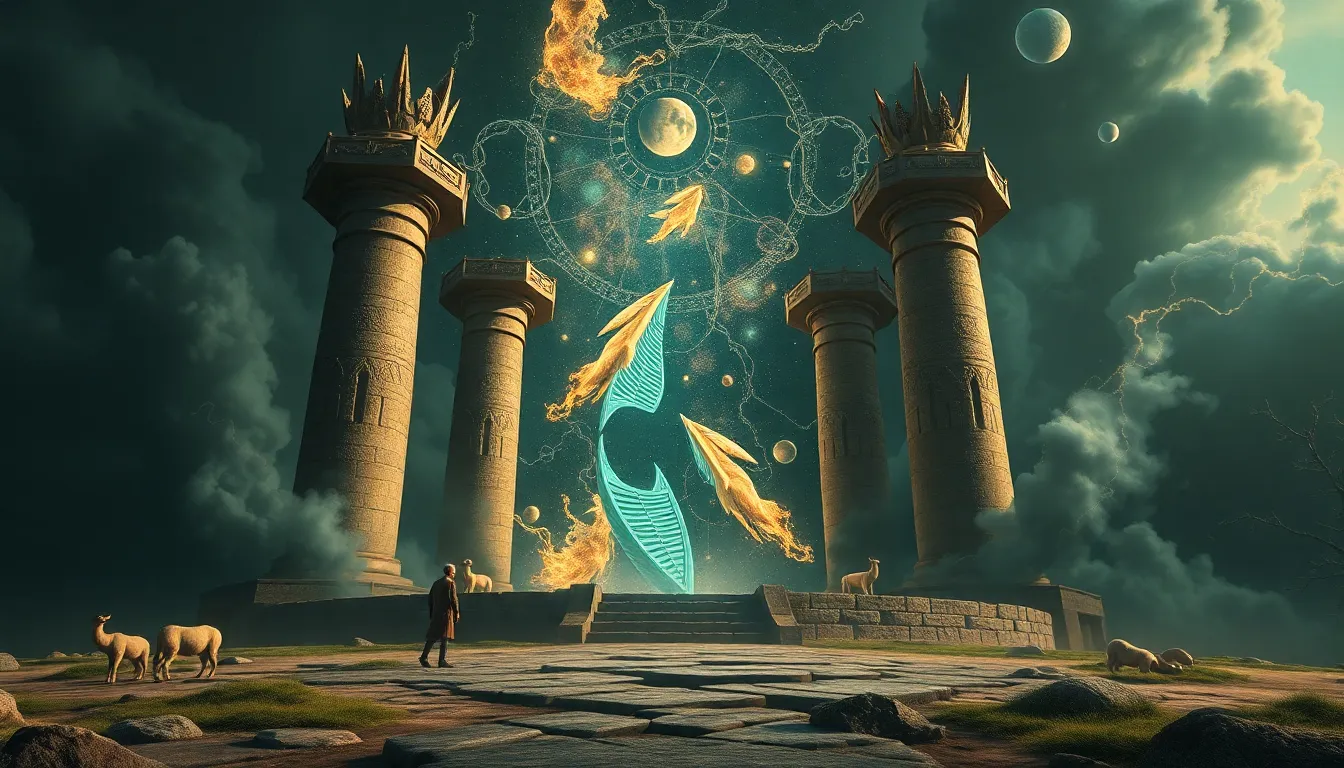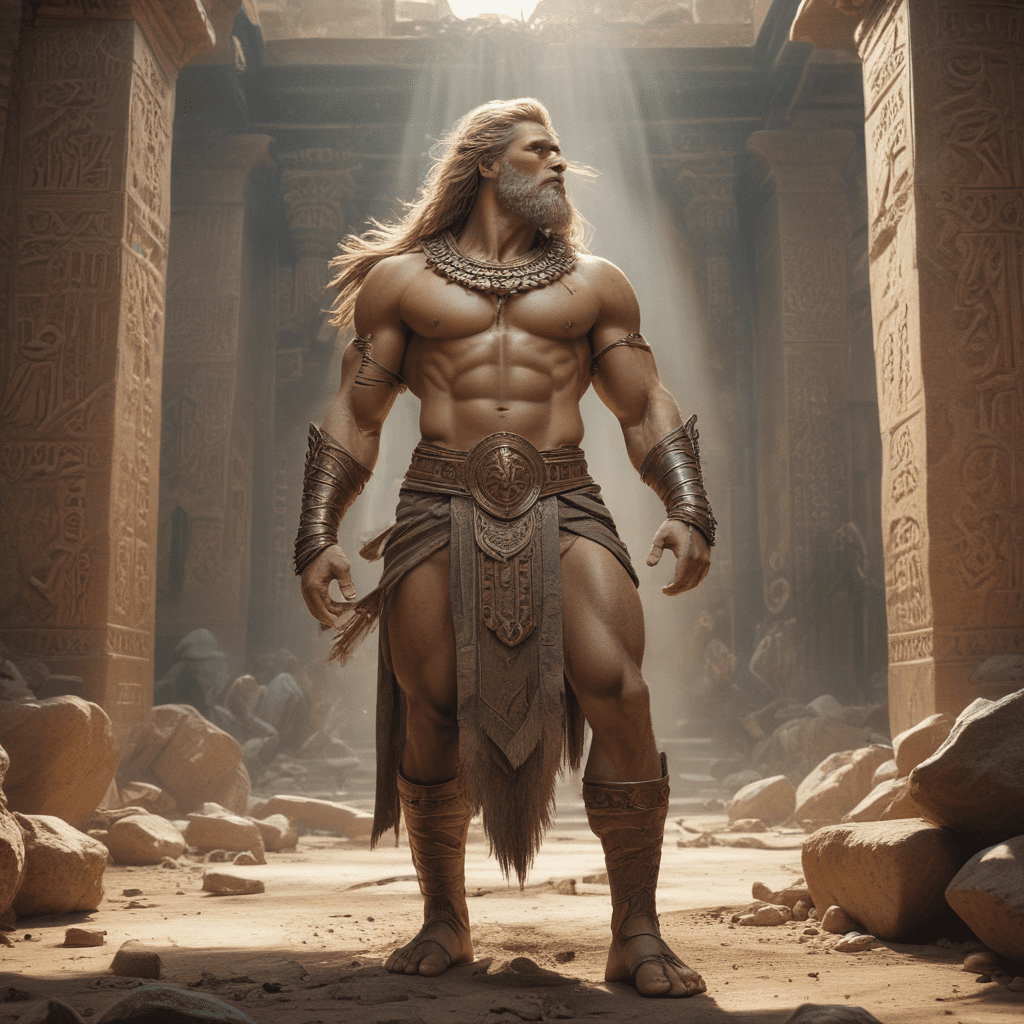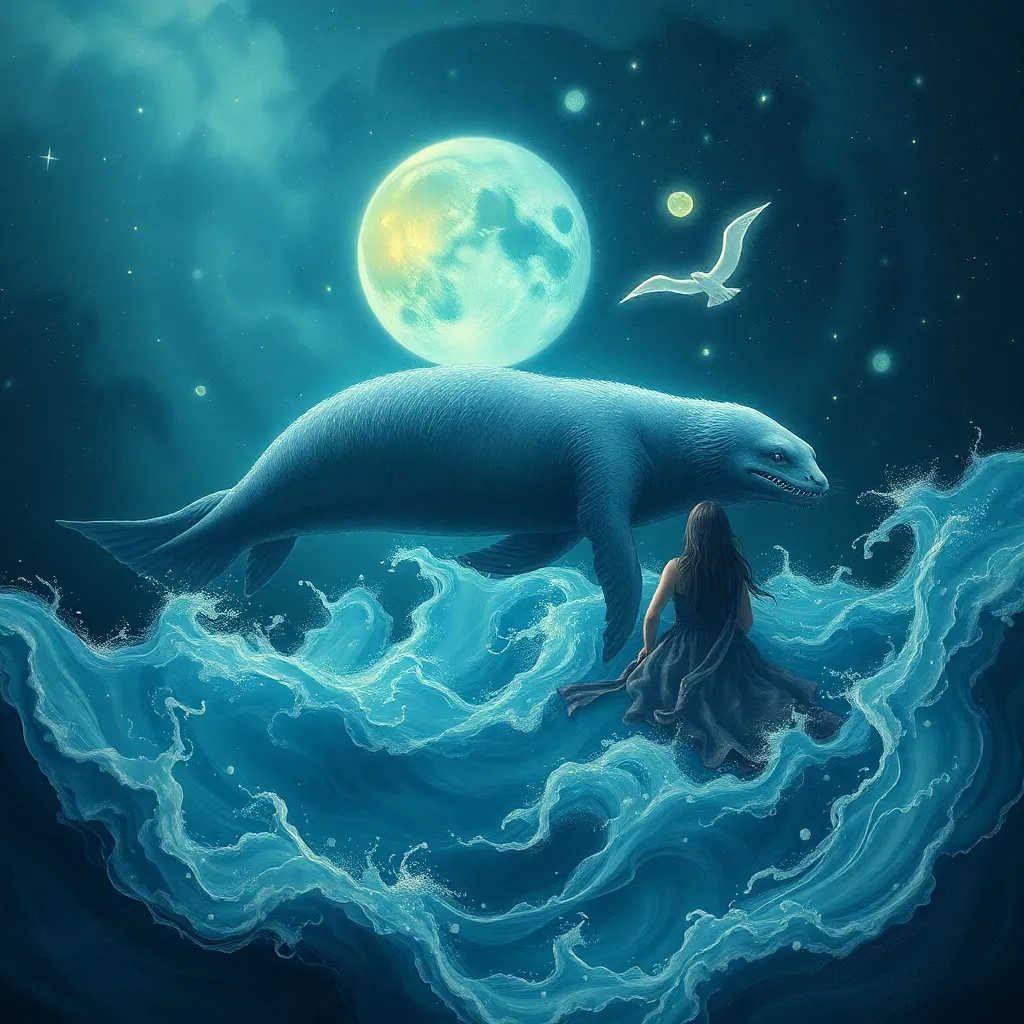The Myths of Creation: How Ancient Deities Shaped Our Worldview
I. Introduction
Creation myths are narratives that explain the origins of the world, humanity, and the universe. These stories, often involving deities and supernatural forces, serve as foundational tales for various cultures, providing context and meaning to human existence.
The importance of deities in these myths cannot be overstated; they are central figures that embody the values, fears, and aspirations of the civilizations that worship them. In this article, we will explore how these ancient narratives have shaped our worldview and the legacy they leave in contemporary society.
The structure of this article will guide the reader through an understanding of myths, their cultural significance, the deities involved, and the implications they have on modern beliefs and identities.
II. The Role of Myths in Human Culture
Myths serve as cultural narratives that resonate deeply within societies. They provide frameworks for understanding the world and our place within it.
A. Understanding myths as cultural narratives
Myths are not mere stories; they encapsulate the beliefs, practices, and values of a culture. They are often passed down through generations, evolving as they are retold.
B. The function of myths in explaining natural phenomena
Many creation myths arise from a need to explain natural events that were otherwise incomprehensible. Thunder, earthquakes, and the changing seasons often find their explanations in the actions of deities.
C. Myths as a means of conveying moral values
Beyond mere explanation, these narratives often carry moral lessons, guiding behavior and establishing societal norms. They define what is considered good and evil, right and wrong, within the context of the culture.
III. The Influence of Ancient Civilizations on Creation Myths
Major ancient civilizations, such as Mesopotamia, Egypt, and Greece, have contributed significantly to the tapestry of creation myths.
A. Overview of major ancient civilizations
- Mesopotamia: Home to the Enuma Elish, which describes the creation of the world from primordial chaos.
- Egypt: Featuring deities like Atum and Osiris, Egyptian myths reflect the cyclical nature of life and death.
- Greece: Theogony by Hesiod narrates the origins of gods and the world, highlighting the relationships between them.
B. Common themes and variations in creation myths across cultures
Despite cultural differences, common themes emerge, such as the emergence of order from chaos, the creation of humanity, and the role of divine intervention.
C. The role of geography and environment in shaping these myths
Geography and the environment play crucial roles in the development of creation myths. For instance, river-based civilizations often have myths centered around water deities, reflecting the significance of rivers for agriculture and survival.
IV. The Pantheon of Deities: Who Created Our World?
Deities associated with creation myths are often complex characters whose attributes reflect the cultures that worship them.
A. Key deities associated with creation myths
- Enki: The Sumerian god of water and knowledge, instrumental in creation.
- Atum: The Egyptian god who created himself and then the other gods.
- Gaea: In Greek mythology, she is the personification of Earth and a primordial deity.
B. Comparative analysis of creation stories
Creation stories such as the Enuma Elish, Genesis from the Bible, and the Popol Vuh of the Maya illustrate different approaches to the creation of the world:
- Enuma Elish: The Babylonian creation epic highlights the battle between gods and the subsequent creation of the world from their conflict.
- Genesis: The Judeo-Christian narrative focuses on a singular, omnipotent deity who creates the world in six days.
- Popol Vuh: The Maya creation myth involves multiple attempts at creating humanity, emphasizing the importance of maize.
C. The symbolism behind deities and their creations
The attributes of these deities often symbolize broader concepts, such as fertility, wisdom, and chaos. Their creations reflect the culture’s understanding of the natural world and humanity’s place within it.
V. The Concept of Chaos and Order in Creation
A recurring motif in many creation myths is the struggle between chaos and order.
A. The motif of chaos in various creation stories
Chaos often represents the primordial state of existence, a formless void from which the universe emerges.
B. How deities impose order on chaos
Deities typically impose order on this chaos through acts of creation, establishing laws of nature and societal norms.
C. The philosophical implications of chaos versus order
This dichotomy raises questions about the nature of existence and the human desire for understanding and control over the chaotic elements of life.
VI. The Legacy of Creation Myths in Modern Worldviews
Creation myths continue to influence contemporary beliefs and practices.
A. How ancient myths influence contemporary beliefs
Many modern religions incorporate elements of ancient creation myths, adapting them to fit new theological frameworks.
B. The persistence of mythological themes in modern religion and philosophy
Themes of sacrifice, redemption, and the cyclical nature of life persist in modern discourse, reflecting ancient wisdom.
C. Analysis of popular culture references to creation myths
Creation myths have permeated popular culture, appearing in literature, film, and art, often reinterpreted to resonate with contemporary audiences.
VII. The Psychological Impact of Creation Stories
Creation stories fulfill deep psychological needs for understanding and belonging.
A. Myths as tools for understanding human existence
These narratives help individuals grapple with existential questions about origin, purpose, and destiny.
B. The psychological need for creation narratives
Creation myths provide a sense of identity and continuity, linking individuals to their cultural heritage.
C. How these narratives shape individual and collective identities
By sharing these myths, communities reinforce social bonds and collective identities, shaping the way individuals see themselves within the larger narrative of humanity.
VIII. Debunking Common Myths about Creation Myths
There are several misconceptions regarding the origins and interpretations of creation myths.
A. Misconceptions about the origins of creation myths
Many believe creation myths are static; however, they evolve over time, shaped by historical and cultural changes.
B. The role of oral tradition in shaping and changing myths
Oral traditions play a significant role in the transmission of myths, allowing for adaptability and reinterpretation.
C. The impact of colonization and globalization on myth interpretation
Colonization has significantly altered the ways in which indigenous myths are understood and respected, often leading to a loss of original meanings.
IX. The Future of Creation Myths in a Scientific Age
The relationship between science and creation myths is complex and evolving.
A. The tension between science and mythological explanations
As scientific understanding of the universe expands, traditional creation myths face challenges, leading to a reevaluation of their relevance.
B. How modern interpretations of myths can coexist with scientific understanding
Many find ways to harmonize scientific explanations with mythological narratives, seeing them as complementary rather than contradictory.
C. The potential for new myths in a rapidly changing world
In our rapidly changing world, new myths may emerge that address contemporary issues such as technology, climate change, and human rights.
X. Conclusion
Creation myths and the deities within them play a significant role in shaping the human experience. They provide narratives that help us understand our origins, our values, and our place in the universe.
The enduring relevance of these myths reflects our ongoing quest for meaning and identity in a complex world, reminding us that while our understanding may evolve, the stories we tell about our beginnings continue to resonate across time and culture.



